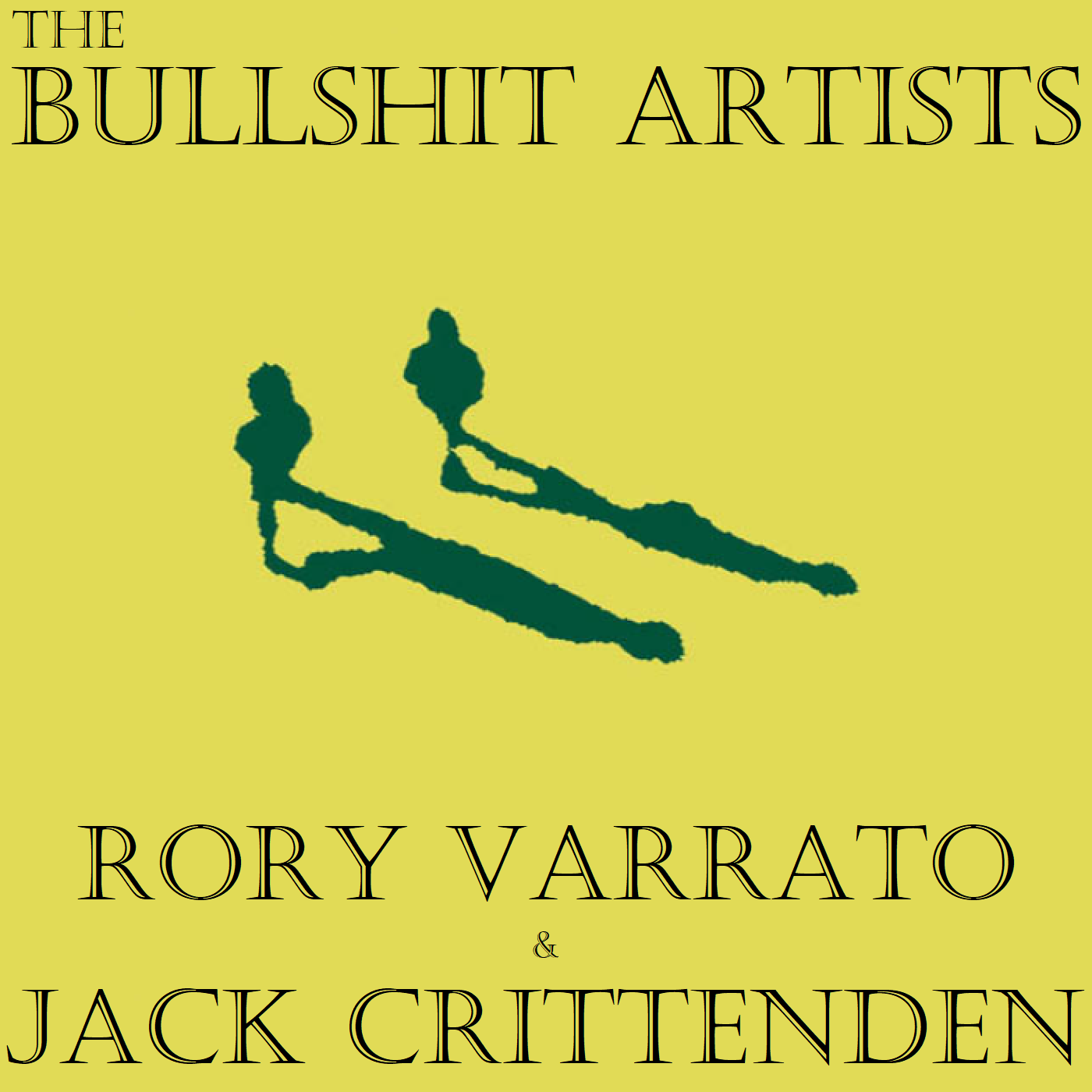
1.3K
Downloads
16
Episodes
Two philosophers—or what comedian Mel Brooks fondly refers to as "bullshit artists"—from different generations join in deep yet casual conversation covering a wide range of topics, including especially politics and the human condition. Jack Crittenden—professor emeritus of political theory at Arizona State University—and Rory Varrato—PhD candidate in the Philosophy and Education program at Teachers College, Columbia University—have known each other for more than ten years, first as teacher-student and later as friends. During that time, they have had countless conversations together (usually over coffee), and some of those chats have even been interesting. The purposes of this biweekly podcast, then, are to provide a new venue for these conversations (especially now, during the pandemic) and to enable these dialogues to reach an audience of more than two. Both interlocutors hope that—at their best—they can offer to each other and to their listeners something like the lighthearted verbal jousting of 'Comedians in Cars Getting Coffee' crossed with the stimulating pleasures of a 'My Dinner with Andre'-caliber conversation: organic, cerebral, funny, unguarded, and chock-full of bullshit.
Episodes

Sunday Feb 06, 2022
Sunday Feb 06, 2022
In this episode, Jack and Rory begin the conversation by dissecting the current state of public discourse regarding the COVID-19 pandemic, especially in light of the recent dispute about misinformation between Neil Young and Spotify, the platform that hosts Joe Rogan’s popular podcast. Among other things, the two consider whether or not this spat concerns issues of free speech and censorship, as well as how it connects with the duo’s ongoing fascination with the two prevailing and increasingly politically polarized views of reality in the United States, i.e., what may loosely be considered the conservative and the liberal worldviews.
To that end, the interlocutors consider the failings and shortcomings of each of these worldviews, including especially the problems with the mainstream liberal position on certain public health policies that are not adequately supported by scientific research. This turn of the conversation then dovetails with a matter that has been of some concern to Rory, namely, the tendency he has noticed among self-identified leftists—whose perspective on politics ought to be at an elevated level of analysis that perceives bourgeois party politics for the charade that they are—to fall into certain reactionary thought patterns when considering best practices for COVID-related public health policies. Specifically, many supposed leftists have rejected vaccination in a knee-jerk reaction to vaccination mandates, failing to realize that they can simultaneously oppose those mandates while also choosing to get vaccinated because doing so nevertheless serves the common good.
Next, the conversation briefly touches on the issue of biomedical surveillance (e.g., in the form of NYC’s Covid Safe app) before turning to a different lens through which to examine COVID-related political dynamics: the psychological dimension, and especially how individual psychopathologies may be coalescing into an aggregation that is more than the sum of its parts. Rory suggests that understanding the malignant narcissism of the typical modern conservative in America, as exemplified by their champion, Donald Trump, could help us to navigate the political task of peaceful coexistence—a claim with which Jack agrees, having written previously about how Trump functions as a cult leader.
The dialogue then shifts to an examination of the failures of the Democratic Party, with a particular focus on its anti-worker neoliberal turn, before Jack shifts the shared line of thought onto the question of whether or not elite institutions—particularly, elite colleges and universities like Columbia—ought to exist. The pair ponder this question together, both expressing mixed feelings about the topic, before they bring the conversation to a close with a consideration of the contemporary value of a Great Books education.

No comments yet. Be the first to say something!